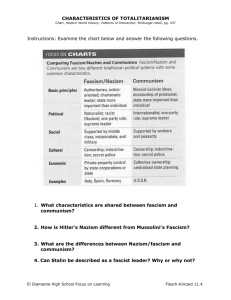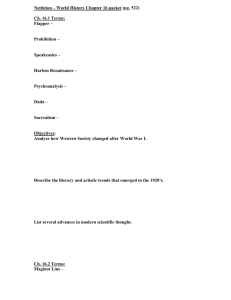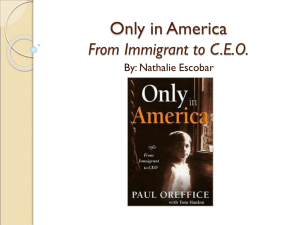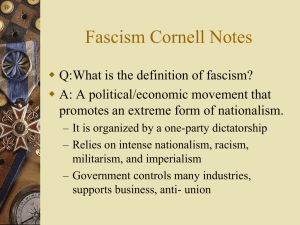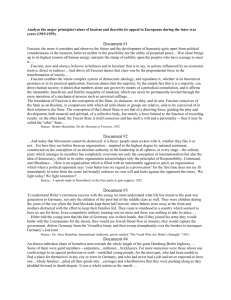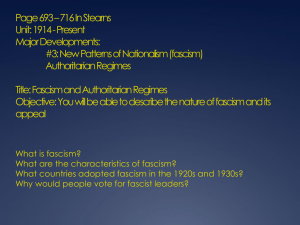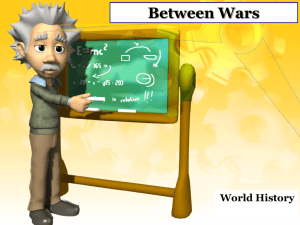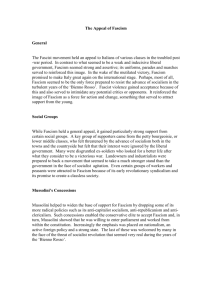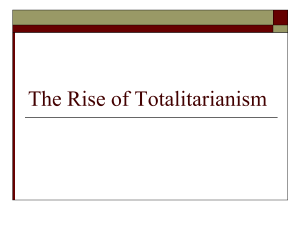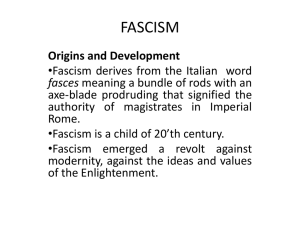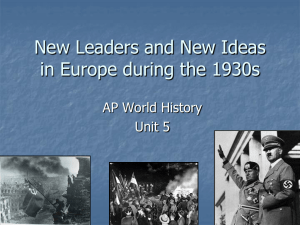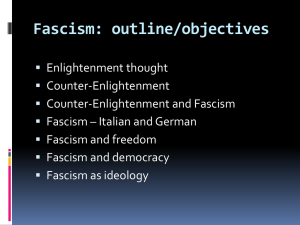World History notes 5-9
advertisement
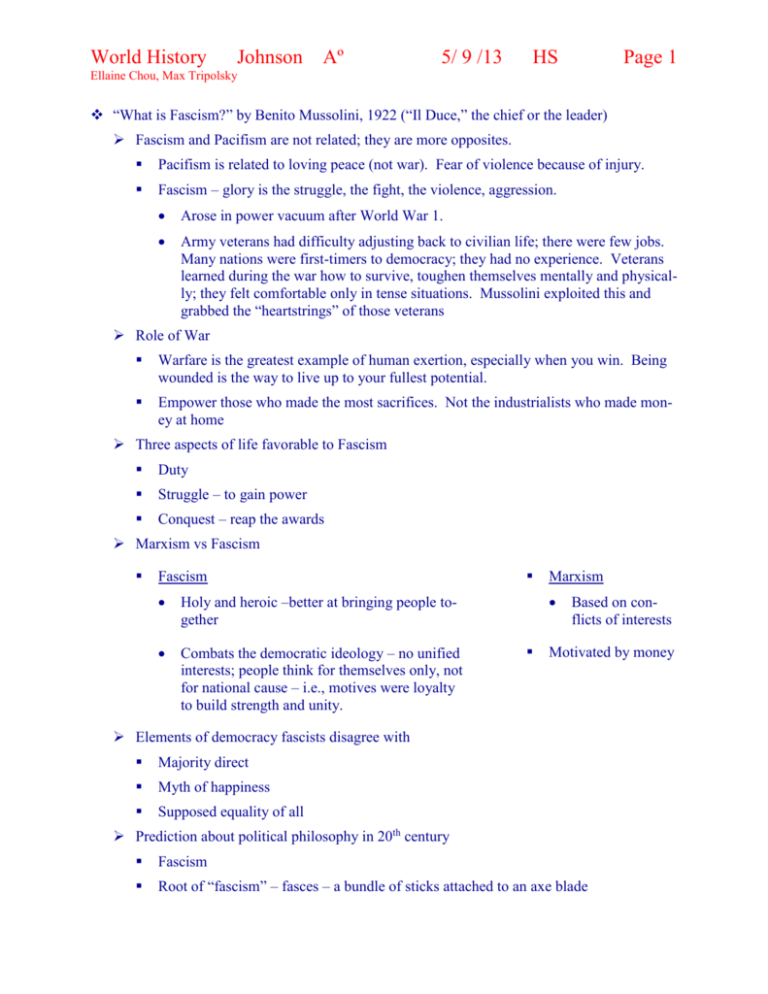
World History Johnson Aº 5/ 9 /13 HS Page 1 Ellaine Chou, Max Tripolsky “What is Fascism?” by Benito Mussolini, 1922 (“Il Duce,” the chief or the leader) Fascism and Pacifism are not related; they are more opposites. Pacifism is related to loving peace (not war). Fear of violence because of injury. Fascism – glory is the struggle, the fight, the violence, aggression. Arose in power vacuum after World War 1. Army veterans had difficulty adjusting back to civilian life; there were few jobs. Many nations were first-timers to democracy; they had no experience. Veterans learned during the war how to survive, toughen themselves mentally and physically; they felt comfortable only in tense situations. Mussolini exploited this and grabbed the “heartstrings” of those veterans Role of War Warfare is the greatest example of human exertion, especially when you win. Being wounded is the way to live up to your fullest potential. Empower those who made the most sacrifices. Not the industrialists who made money at home Three aspects of life favorable to Fascism Duty Struggle – to gain power Conquest – reap the awards Marxism vs Fascism Fascism Holy and heroic –better at bringing people together Combats the democratic ideology – no unified interests; people think for themselves only, not for national cause – i.e., motives were loyalty to build strength and unity. Marxism Based on conflicts of interests Motivated by money Elements of democracy fascists disagree with Majority direct Myth of happiness Supposed equality of all Prediction about political philosophy in 20th century Fascism Root of “fascism” – fasces – a bundle of sticks attached to an axe blade World History Johnson Aº 5/ 9 /13 HS Page 2 Ellaine Chou, Max Tripolsky Fascism is the state; protecting and maintaining the State; it’s alive and conscious based on the vitality of the people. Essential manifestation of Fascist vitality – creation of an empire, like ancient Rome Old video (film) on leadership – how charismatic should you be? Mussolini was a dynamic speaker, able to arouse crowds; a great actor, his state was the balcony. Events were staged productions Delivery of words more important that the words itself Appealed to emotion and action Came from humble origins; hated rich people Preached violence but let others practice it. Sensational journalist; had no interest Developed Fascism Violence for its own sake March on Rome to save Italy from anarchy and Bolshevism Create chaos to allow fascists to solve it. To keep him quiet, he got to be Prime Minister; hoping that violence would calm down When in power, he received majority support in parliament. A mixed version of fascism and democracy. Speeches before Parliament were mostly for show. He did little actual work, but the nation worked. Italians were asked to sacrifice by burning their own bonds. His image: champion of the masses; a symbol of physical fitness, excelling at all sports; had many mistresses but was a family man. He joined farm workers when the newsreels were on. Visions of great architectural structures; he wanted to reconstruct the Roman Empire. Accomplishments: road system, swamp drainage. All under the guise of “battle”. Preparations for war: Italy re-armed while other disarmed. But weapons were primarily for show and parades. He was able to stir passions among the people from balcony speeches – lots of hand and arm gestures. Hitler borrowed from Mussolini’s techniques; except he and the Nazis were more brutal. Signup sheet for project presentation outside classroom.
